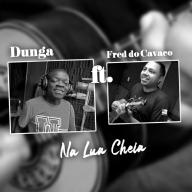Dunga
Biography
Dunga was an amateur composer who wrote several classics of the golden age of Brazilian song and was recorded by many stars of the period. In 1932 he won a Carnival contest promoted by the newspaper Jornal do Brasil (Rio) with the march Nossa Bandeira. His first recorded composition was Amar, Pra Que, performed by Sílvio Pinto in 1934. Chora Cavaquinho, written in 1935, was recorded by Orlando Silva in 1936. In 1937 Dunga wrote Sinto Uma Vontade de Chorar, also a hit in Silva's voice. In 1938, he wrote Foi Você and Hoje Não, só na Quinta-Feira (with Haroldo Lobo), recorded by Arnaldo Amaral. In the next year he wrote Levanta, José (recorded by Emilinha). In 1940, Dunga wrote Sereia (with Nássara); in 1941, he wrote Dizem por Aí, recorded by Araci de Almeida. In 1942 came Odete, recorded by Francisco Alves, and Morro, performed by Trio de Ouro. In 1943, Dunga wrote Quando Alguém Me Perunta, recorded by Castro Barbosa, in 1944 he wrote Quem é Você, sung by Ataulfo Alves, and in 1945 Você é Que Pensa, performed by Alcides Gerardi. Dunga also wrote the choro Modéstia à Parte, recorded by Radamés Gnattali, As Cadeiras me Doem, recorded by Linda Batista, Casinha de Bambuê, recorded by Dircinha Batista, and Conceição (with Jair Amorim), Caubi Peixoto's biggest hit, which was recorded by Dircinha Batista and others. Bilhete was recorded by Elza Soares and Maria Dos Meus Pecados by Agostinho dos Santos. ~ Alvaro Neder, Rovi
Top Tracks
Albums
Videos
Close













